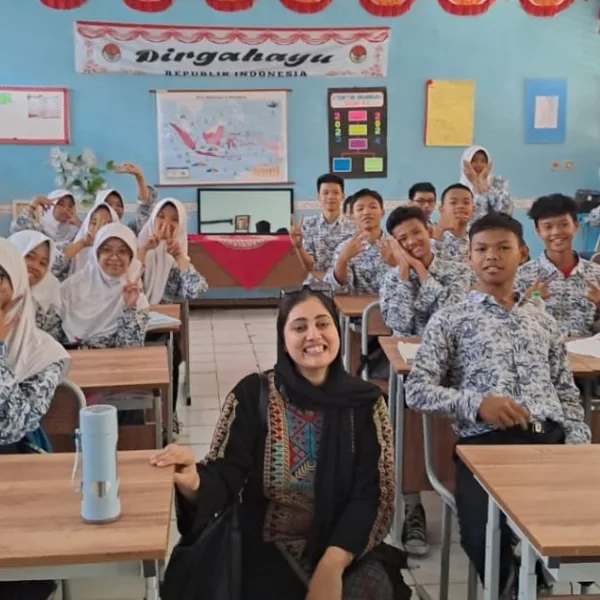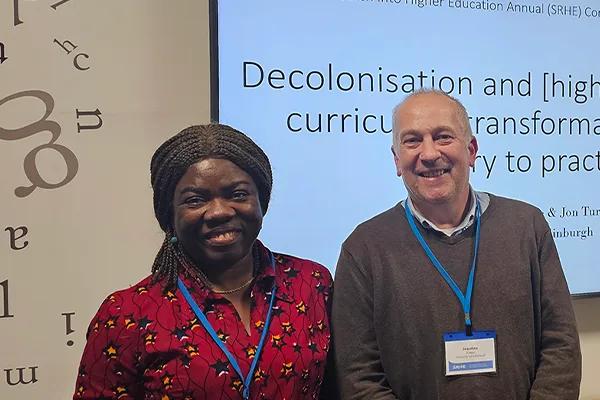Giselle Gonzales uses business and technology as a solution for humanitarian challenges. She started this mission 10 years ago when she was a freelancer documenting Europe’s refugee route during the Syrian refugee crisis.
“Before that, I hadn’t been exposed to the realities of forced displacement,” she explains. “I knew only what I had seen on the news. Yet on that journey, I was confronted by the stories of individuals – not the detached numbers of the crisis. The experience shook me to my core and I couldn’t look away.”
After experiencing that journey firsthand and mapping the key supporting partners from Greece to Germany, Giselle collaborated with entrepreneurs who were using technology to build solutions for those most impacted by the crisis.
She says: “In the months and years that followed, I talked to anyone who would listen about what was happening on the ground. I wanted to humanise the people that we are often so quick to other. I started a series of events from small local campaigns to help other people in my local communities advocate for refugees.”
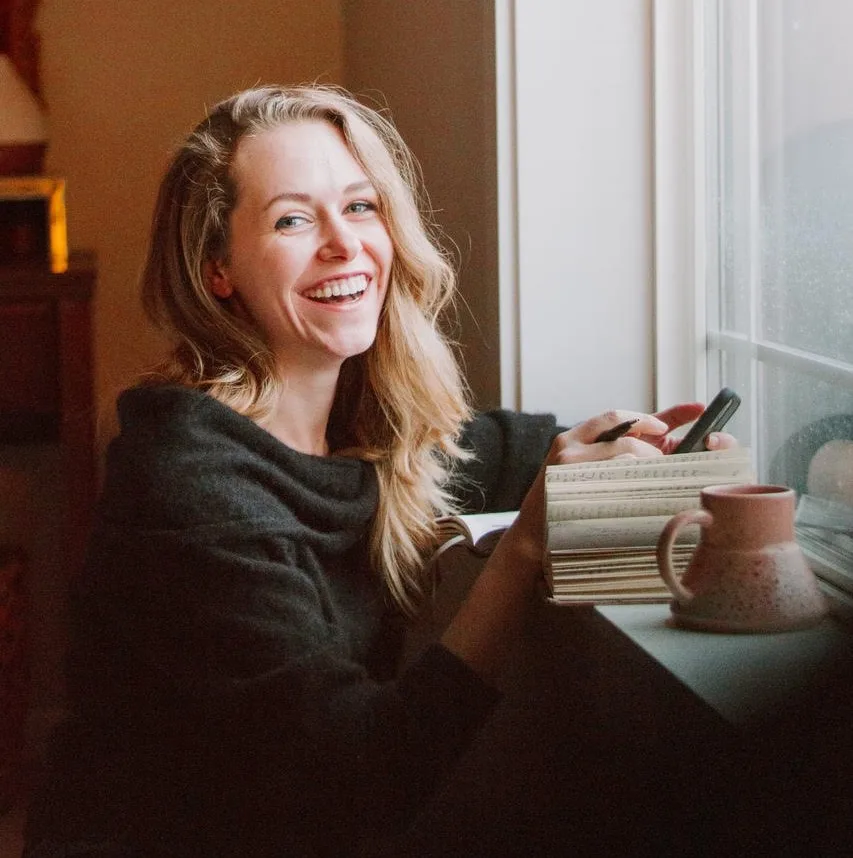
Finding community in Edinburgh
Giselle returned to education in 2018 for an MSc in Entrepreneurship and Innovation from the University of Edinburgh. The social enterprise aspect of the degree appealed to her.
“I was working with a lot of NGOs and social enterprises as a freelancer,” she says. “I was drawn to the types of solutions that emerged across sectors. The way in which people were using technology in business to solve big humanitarian challenges inspired me. They were the types of challenges that I loved thinking and reading about. I admired the way so many entrepreneurs were using their businesses to uniquely make a difference.
Giselle describes her degree at Edinburgh as a ‘launchpad’. She adds: “I’d done most of my work in the travel industry up until that point. I had been a contractor for social enterprises but I hadn’t worked full-time at a start-up for longer than a few months.
“Edinburgh gave me space to build up my business acumen. I learned to speak the language of decision makers who could drive incredible social change through a business lens.”
Giselle finds the city inspiring: “When I visited Edinburgh, it scratched an itch on the back of my brain. This city is everything that I love all in one place. There is a great quality of life here.”
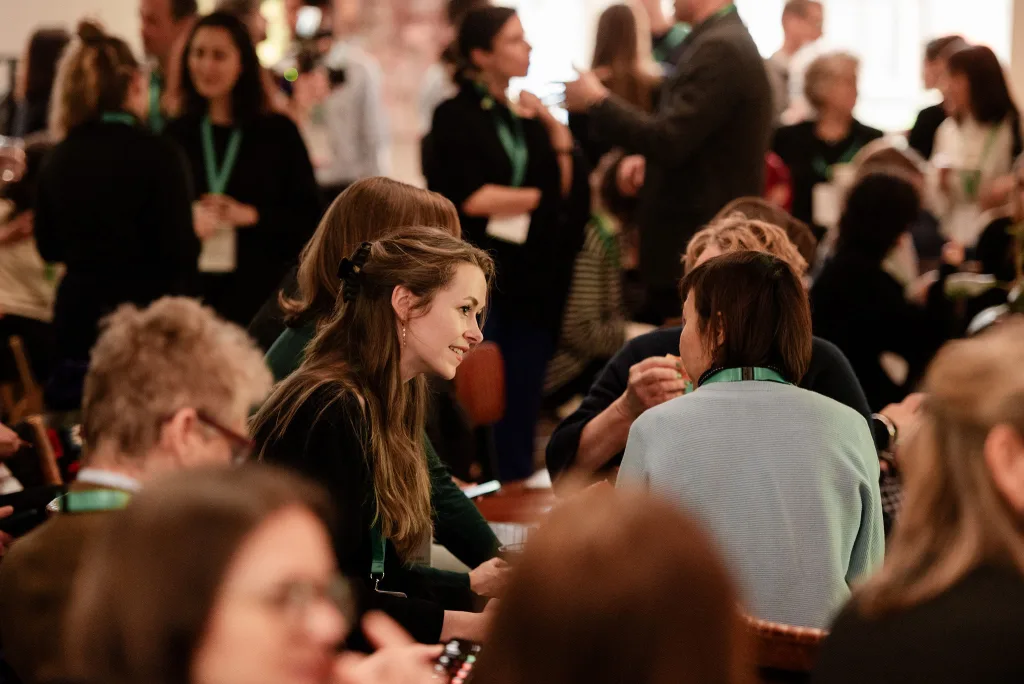
Researching digital inclusion
As part of her dissertation, Giselle began researching the rise of digital work among forcibly displaced people. She now advocates for their fair economic and digital inclusion. Her work is featured by the World Bank, International Labour Organisation, UNHCR, Santander, One Young World, and more, including delivering the latest Jubilee Lecture at the University of Edinburgh Business School.
Giselle says: “The research element of the dissertation set me up for so much of what I’m doing today. At the time, it felt like a niche thing to study as it was before Covid. Now it seems like such an obvious thing but back then very few were really looking into it.
“I built this incredible network with my research student hat on. I would speak with anyone who would let me about the work that they were doing.”
Giselle benefitted from Edinburgh’s entrepreneurial values. “I am in London now, and I still hear people referring to the entrepreneurial ecosystem in Edinburgh. It‘s this hub where ideas are flourishing. When I was choosing where to go for my Master’s, I wanted to be surrounded by people who were working through exciting challenges.
“From a career perspective, I liked that it was a bit smaller than somewhere like London. I liked being able to have a more tight-knit community, and there were so many innovative ideas. Through my dissertation, I got to be a part of a cutting-edge new wave of digital work as an economic inclusion driver that the international development community, policymakers and the business community are now paying attention to.”
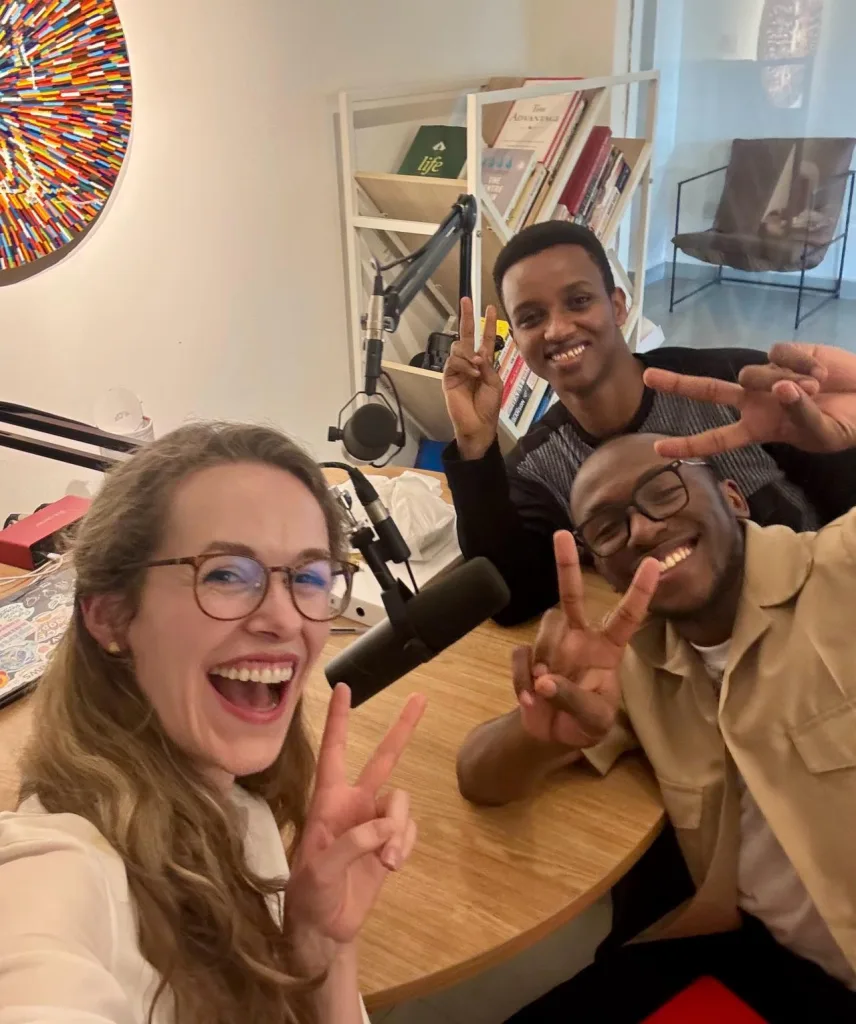
Building solutions to humanitarian challenges
After graduating in 2019, Giselle built Amazon’s first team-based impact sourcing solution to send digital work to refugee talent. Her experience overcoming the most common hurdles that both businesses and refugees face led her to start EqualReach to address these challenges with industry leaders.
EqualReach aims to change the way the private sector outsources for good. Think of a fair-trade version of a freelancing marketplace, but with a team and project-based model that funnels livelihood opportunities to some of the world’s most marginalised communities via web or mobile-based digital work. This enables upskilled talent to access paid digital projects that exist in nearly every organisation but aren’t accessible for most refugees.
“It is the most fulfilling work I have ever done,” Giselle says. “I feel like the last 10 years of my career have been leading up to building this. EqualReach is the culmination of years of being on the sidelines but now I get to be in the arena.
“Sometimes I fail, sometimes I succeed, but the CEO role just teaches me a ton daily. It lets me actually practice what I preach and build the kind of company I wish existed in the world.”
Adapting to change
Giselle says her work can be challenging. “I think I’ve often been underestimated at the beginning of new parts of my career, but I can be bullish. Maybe it’s the American in me, but even though sometimes I walk into a space where I have the least amount of knowledge or expertise, I’ll still make sure I’m in the room, leaning in with curiosity.
“Whenever I step into new spheres of leadership, I know I have a lot to learn. As a business owner, there’s so much that you need to learn and adapt to quickly because often the risks of not knowing are so high.”
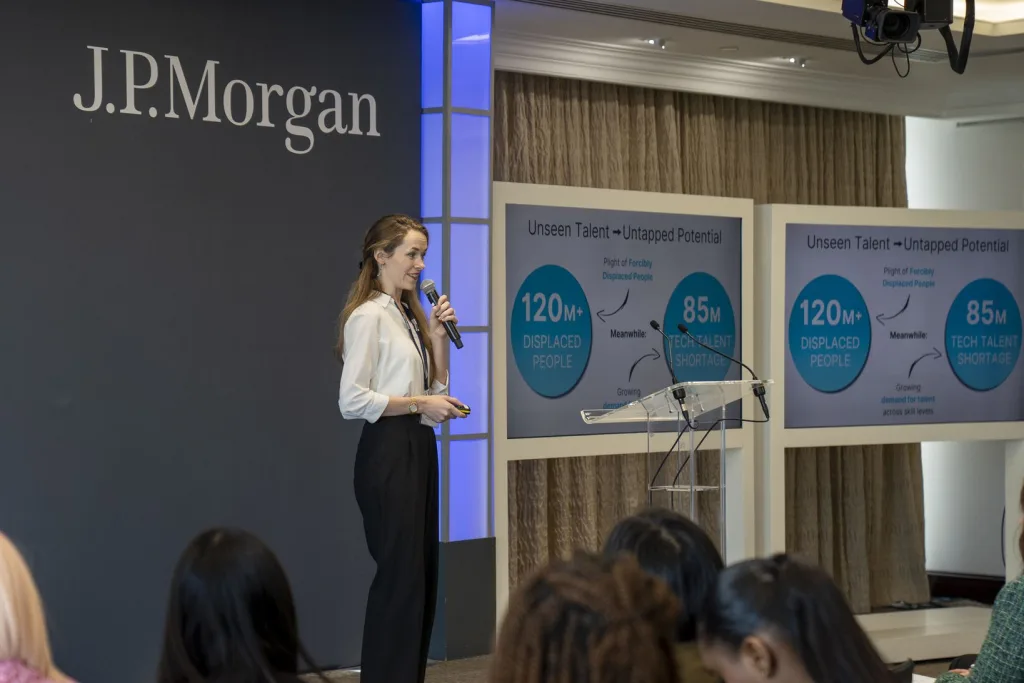
Receiving recognition
Giselle was shortlisted as a finalist for the Being Edinburgh Award. This is an annual prize celebrating someone in the University’s alumni community who makes an impact on the world.
She says: “It’s incredible what the other finalists were building, and it is such an honour to be shortlisted with them. We all probably do this work because we care deeply about it, not because it’s easy. Having a platform like the Being Edinburgh Award to talk about our work and recognise the missions that we’re putting our blood, sweat and tears into creating is special.”
Giselle advises those who want to make an impact to be curious about the world.
“If you see something that is not the way it should be in the world, don’t just critique it,” she says. “It is so easy to sit on the sidelines and see the flaws, but it’s much harder to fill those flaws with something different.
“I think the best thing people can do is when they see a humanitarian, environmental or a justice challenge in the world that they feel isn’t right, is to notshut down because it feels too overwhelming. Rather, these challenges exist in massive systems that are made up of a lot of different pieces. So try first to understand the broader system in which the issue exists. Lean in with curiosity. Don’t just judge. Then start building.”


